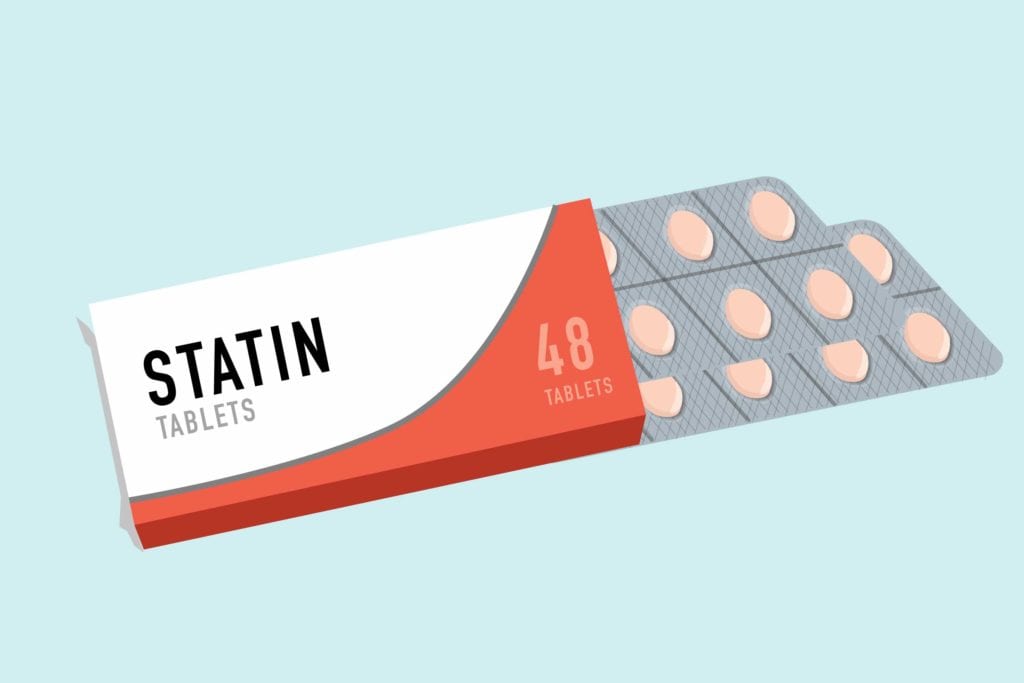
Saturated fat and dietary cholesterol have been labeled as harmful substances. Due to a misleading link to heart disease, both doctors and the media advise people to limit their intake of these nutrients as much as possible. Pharmaceutical companies, believing that cholesterol is a major cause of heart disease, created statin medications designed to lower cholesterol levels and decrease the chances of developing heart disease. These drugs have been heavily marketed and generate significant profits for the pharmaceutical industry. Even the US government’s “My Plate” website warns against consuming saturated fat, claiming it raises the risk of heart disease and urging people to cut it out of their diets to stay healthier.
However, can we truly assert that statins are as safe and effective as the leading medical authorities suggest? The clear response is NO.
Health Dangers of Statin Drugs
- Statins inhibit the synthesis of coenzyme Q10, a compound that plays a crucial role in supporting the immune and nervous systems, enhancing cardiovascular and muscular health, regulating blood pressure, and contributing to various other essential bodily functions.(study)
- Statins can impair the immune system, hindering the body’s ability to combat bacterial infections, and they also elevate the production of cytokines, which initiate and perpetuate inflammation. (study)
- Statins can reduce the positive effects of omega-3 fatty acids because they encourage the breakdown of omega-6 fatty acids. This process can lead to higher insulin resistance and a greater chance of developing diabetes. (study)
- Statins lower the amount of cholesterol that the body makes. Cholesterol is really important for brain health. Even though the brain only makes up 2% of our body weight, it actually holds about 25% of all the cholesterol in our body. (study)
- According to Dr. David Williams in his July 2014 Alternatives newsletter, people who take statins are more likely to experience issues like nerve damage and pain, memory problems, confusion, depression, and they also face a greater risk of developing ALS and Parkinson’s disease. (study)
- An animal study found a connection between statin use and muscle damage. The animals that exercised while on statins experienced 226% more muscle damage compared to those that didn’t receive statins. (study)
- They can impact how well you sleep. (study)
- Statins raise the chances of developing prostate and breast cancer. (study)
- These medications are known to harm the liver by boosting the production of digestive enzymes.
- Statins can also accelerate the aging process and reduce libido.
High Cholesterol Doesn’t Cause Heart Disease
A lot of people still think that cholesterol and saturated fat build up on artery walls and lead to atherosclerosis. However, most scientists now agree that the real issue is the damage and inflammation happening inside the artery lining. When the cells get damaged, the immune system kicks in to fix it, which leads to inflammation. During this healing process, materials can pile up, and scar tissue may form. The substances produced by the immune system can also cause more harm. This damage makes the artery lining tighter and less flexible. As more cell damage happens, these problems build up and eventually cause atherosclerosis.
There are several factors that lead to cell damage and inflammation in the artery lining. These include stress, high blood sugar, high blood pressure, exposure to harmful chemicals, poor nutrition, and infections. Our lifestyle plays a big role in all these factors, and we can make changes to improve them.
Health Benefits of High Cholesterol
Cholesterol is really important for several functions in our bodies, like making hormones, vitamin D, and helping with digestion. Throughout your life, you might have been told that having high cholesterol is harmful.
Many people think that cholesterol is harmful because of what they see in the media. However, cholesterol actually plays a role in preventing dementia, fighting off infections, and it doesn’t really affect heart disease. In fact, it might even lower the risk of dying from various causes. (research, research, reasearch)
Dangers of Low Cholesterol
- Reduced cholesterol levels are linked to a shorter life expectancy. (research, research, research)
- Low LDL levels are correlated with a higher risk of cancer. (research)
- Decreased cholesterol levels are associated with an increased risk of Alzheimer’s disease. (research)
- Low LDL levels may elevate the risk of developing Parkinson’s disease. (research)
- Reduced cholesterol levels are connected to a decline in mental health. (research)
- Low cholesterol is associated with impaired cognitive function. (research)
- Low LDL levels are also associated with a higher risk of stroke. (research)
- Notably, 75% of individuals who experience heart attacks have normal or low LDL levels. (research)
Benefits of “High” Cholesterol
Elevated cholesterol levels are associated with a decrease in overall mortality. High cholesterol is correlated with a reduced risk of developing dementia. Additionally, high cholesterol has been linked to a lower likelihood of Parkinson’s disease. It is also associated with a diminished risk of colorectal cancer and breast cancer. Furthermore, high cholesterol may offer protection against infections and cardiovascular diseases. Lastly, it plays a role in the repair of brain lesions. (research, research, research)
The Real Causes of Heart Disease: Inflammation, Carbs, PUFAs
Modern scientific research indicates that saturated fat is not a contributor to heart disease. Instead, it suggests that the high-carbohydrate grains and industrial vegetable oils we often use to replace high-fat animal products are the primary culprits behind heart disease. Evidence supports the notion that heart disease is fundamentally an inflammatory condition driven by carbohydrates and polyunsaturated fatty acids (PUFAs) found in vegetable oils. A 2017 study published in the British Journal of Sports Medicine clearly states, “Saturated Fat does not clog arteries: coronary heart disease is a chronic inflammatory condition the risk of which can be effectively reduced from healthy lifestyle interventions.” Rather than eliminating red meat and other saturated fat sources, adopting a whole food, low-carbohydrate dietary strategy is the most effective method for addressing insulin resistance and inflammation, which are the underlying factors contributing to heart disease.